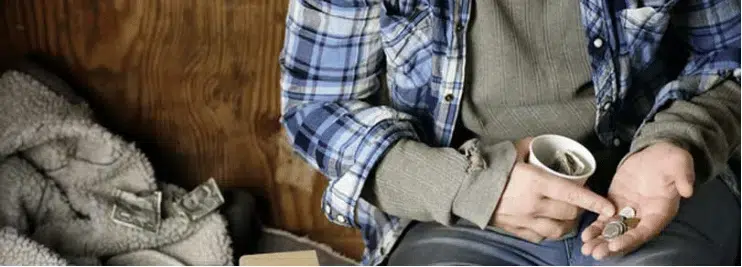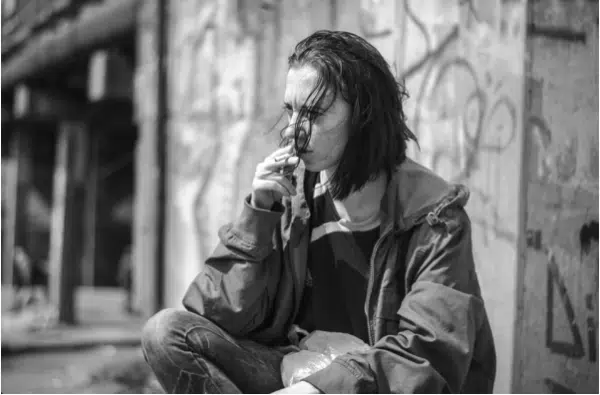Homeless And The Addiction Connection
Updated 04/05/2023

About twice as many homeless people are dependent on drugs or alcohol as the general population according to reports, and their dependence often leads them to criminal behavior and prevents them from taking steps to get off the streets.
How Addiction Leads to Homelessness
Addiction destabilizes addicts’ lives and makes it nearly impossible for them to maintain a residence. Drugs and alcohol cost money and often cause people to lose control of their finances, their jobs, and even relationships that contribute to a stable life.
A U.S. Conference of Mayors study found that, in the majority of cases, homelessness among single adults was caused by substance abuse. Once on the street, the addiction dictates daily habits and routines, including criminal behaviors to get money to keep using. Homelessness is dangerous for addicts, with drug overdoses and attacks from violent fellow homeless people causing many deaths.
The opioid epidemic has hit the homeless just as strongly as other segments of society and accounts for most of the overdose deaths among the homeless. A recent study of Boston area homeless revealed that overdose deaths have now surpassed deaths from HIV as the leading cause of death for homeless adults. Homeless adults between 25 and 44 were nine times as likely to die from an overdose as those with stable housing.
Treating Addiction Among the Homeless
There is help for homelessness and for addiction, even when the two go together. Treatment programs work together with social services to assist with housing, employment, and treatment for medical needs so that homeless addicts can regain their stability and return to a productive life once they are in recovery.

Many homeless addicts are best served by medication-assisted treatment programs that will allow them to detox safely and wean themselves off their highly addictive substances. Medications like naloxone and buprenorphine are safe and save people from deadly overdoses by getting them off illegal drugs in a healthy way.
Legalized marijuana in Colorado seems to be drawing recreational users from other states to certain towns, where they sometimes move on to harder substances and become part of the growing homeless population. As tourist areas and upscale communities take steps to keep the homeless from disrupting their lives and livelihoods, substance treatment can be part of the solution by helping addicts return to productive lives.
If you need help to overcome addiction, contact us at Recovery Village at Palmer Lake to find out how to break free from addiction and lead a healthy, productive life.




